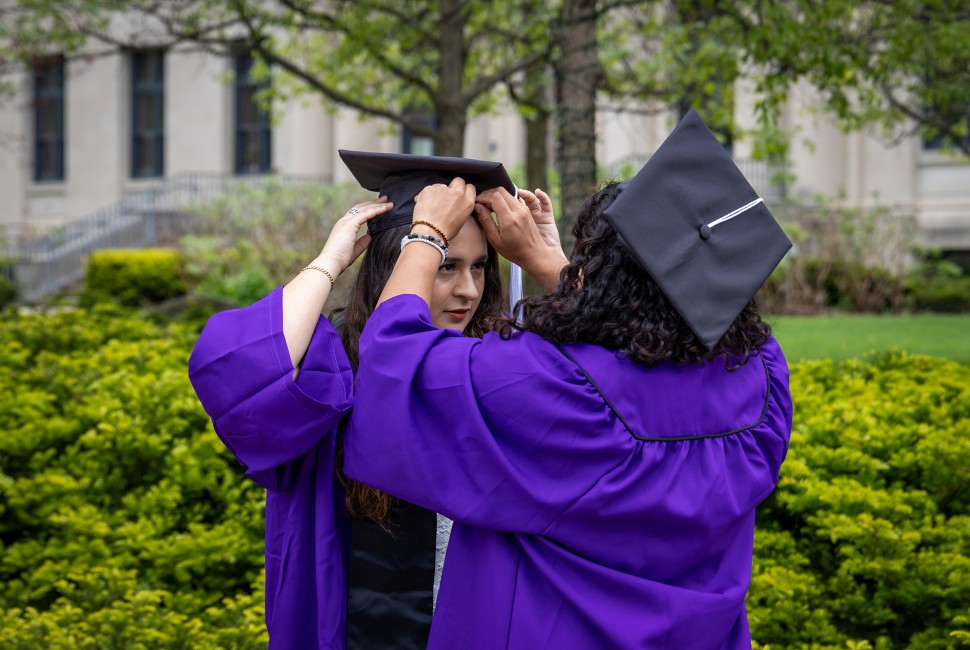Flashback to fall 2021 when this year’s Northwestern graduates resumed the tradition of marching through Weber Arch after a pause in 2020 due to COVID-19.
From that point, each student started a personal journey that has included twists, turns, highs and lows on the way to a Northwestern degree and a future that starts now.
Newly minted grads will meet plenty of opportunities and challenges as they turn the page and begin a new chapter. That could mean joining the workforce, forging new relationships, pursuing further education and much more.
With that in mind, Northwestern Now asked three faculty members to share tips on how to face — and meet — the exciting transition ahead. Here’s what they had to say.
Find your allies and mentors
“In these perilous times, it is important to have as many allies as you can,” said Andrew Roberts, associate professor and associate chair of political science in the Weinberg College of Arts and Sciences. “Even if you don't agree with others on everything, as long as they are on the right side of your fundamental values, then build bridges rather than barriers.
“Hopefully, you found good mentors on your path at Northwestern. As you take the next step, keep searching for mentors in all aspects of your lives. What humans do best is learn from others. And feel free to keep using the mentors you found here!”
Be true to you, but stay connected
“This next phase of life can go in so many different directions,” said Mesmin Destin, faculty director of student access and enrichment and professor, human development and social policy, professor of psychology in the School of Education and Social Policy. “My two guiding words — based on research about success and well-being — would be authenticity and connection.
“Keep seeking out exciting opportunities and try to gravitate toward those that allow you to feel true to who you are and, at the same time, work to stay connected to people who care about you.”
Step outside your comfort zone
“Because of a phenomenon called the ‘reminiscence bump,’ the experiences that we have in our 20s create strong and vivid memories that can last a lifetime,” said Katie Insel, associate professor of psychology in Weinberg.
“The brain is more ‘plastic’ during our early 20s compared to later in life, and it responds to new experiences by forming new connections. This means that the post-grad years are some of the best times to explore new ideas, try new things and learn from others as you venture outside your comfort zone.”


